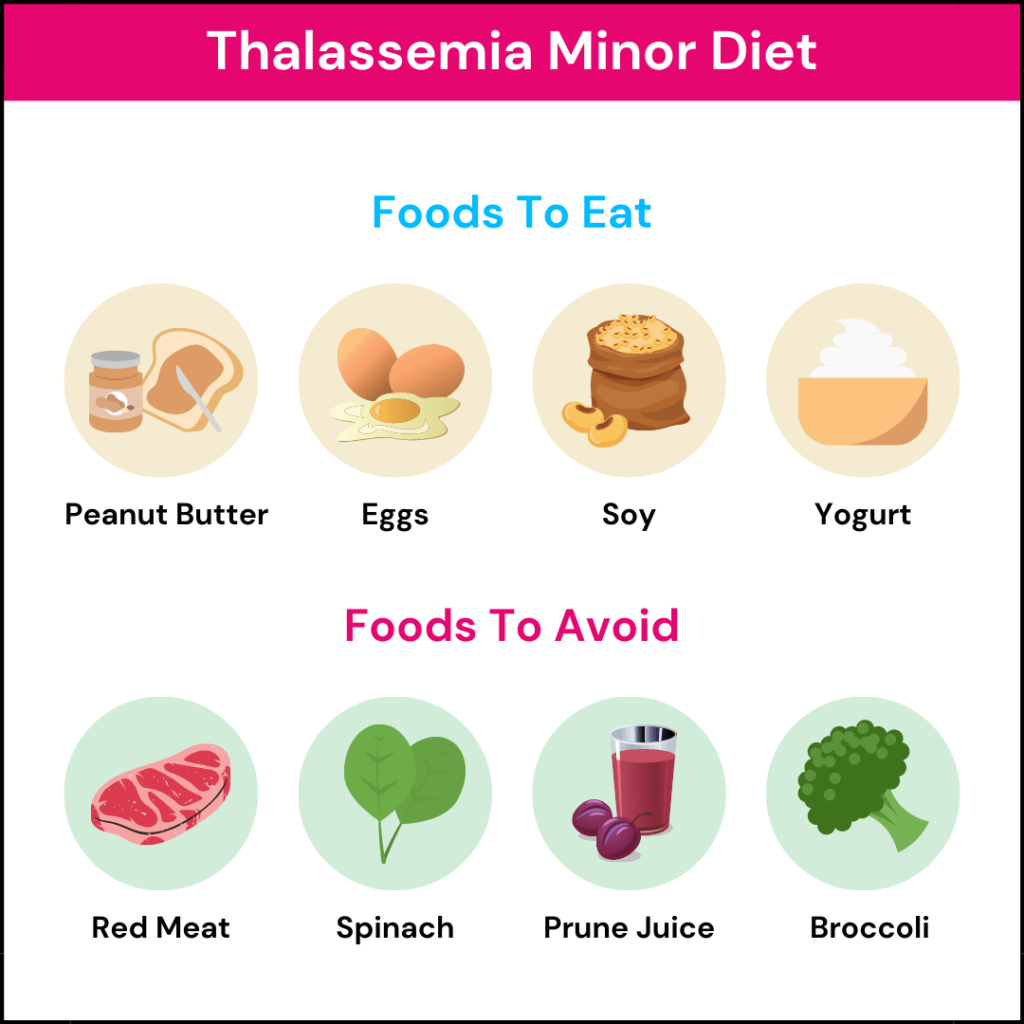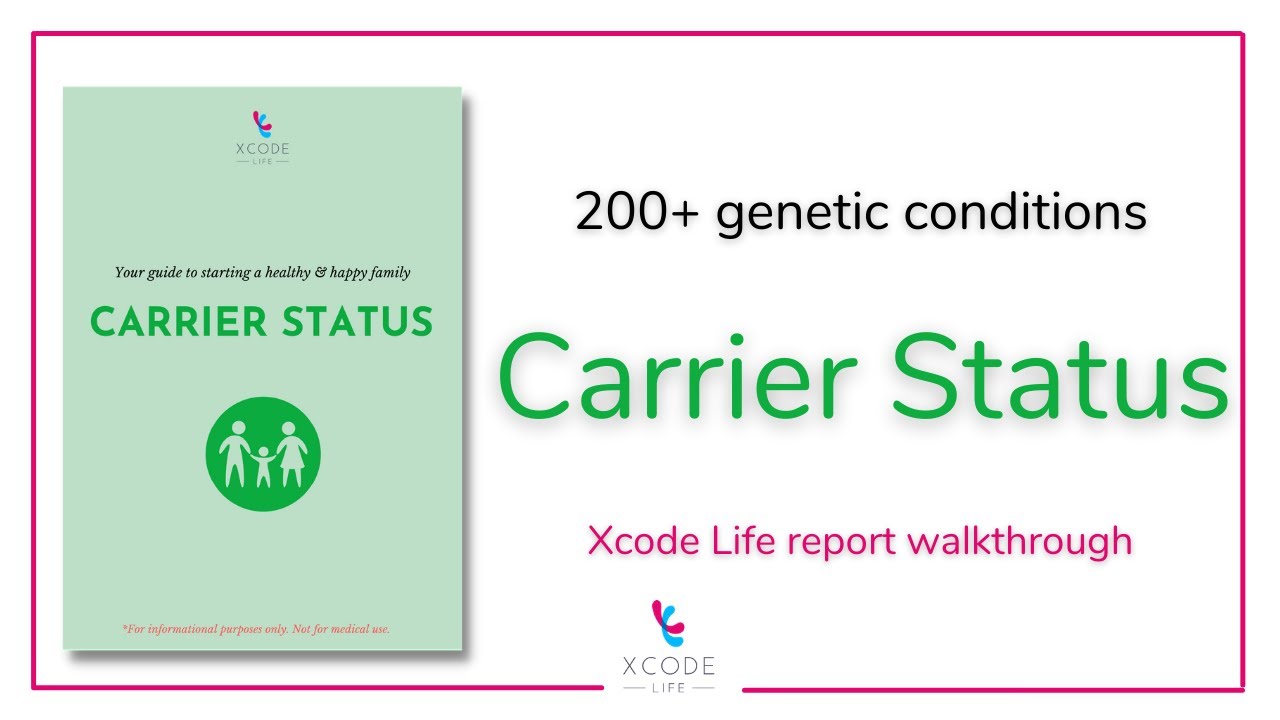For those living with thalassemia minor, dietary choices can greatly impact their health and well-being.
However, with conflicting information and a wide range of foods to choose from, it can be difficult to determine what to eat and avoid.
This article aims to explore essential elements of a thalassemia minor diet. Further, it provides insights into making informed choices that support your health and manage your symptoms.
You may carry genes associated with inherited conditions and not develop the condition but may pass it to your children.
Overview of Thalassemia
Thalassemia is a blood disorder inherited from parents.
In this disease, the body does not produce enough hemoglobin.
As a result, red blood cells (RBCs) don’t function properly in the body and last for a shorter period.
Due to the shortage of RBCs in the body, oxygen is not adequately transported to the organs.
People with thalassemia often experience shortness of breath and suffer from anemia.
Beta thalassemia, the more severe form of thalassemia, can be of two types: major and minor.
Of these, minor thalassemia patients do not show any symptoms and are often unaware that they have the condition.
May 8 is designated as World Thalassemia day.
Thalassemia and Nutritional Deficiencies
People with thalassemia are encouraged to make healthier lifestyle choices to manage the disorder.
Patients with thalassemia are more prone to suffer from nutritional deficiencies.
They are often prescribed oral chelators for treatment that reduce appetite and make an individual nauseous.
It might lead to nutritional deficiency.
Chelation therapy also leads to the loss of certain minerals like zinc from the body.
Thalassemia patients are encouraged to include foods rich in protein, vitamins, and minerals.
Thalassemia Minor Diet

A thalassemia diet should contain protein sources that are not high in iron.
It should also include foods rich in minerals like zinc and calcium that strengthen the bone.
Foods To Include
- Proteins: Thalassemia patients are advised to include foods rich in protein.
But these foods should also be low in iron content.
Eggs, peanut butter, cheese, and soy are ideal proteins for thalassemia patients.
- Calcium-rich foods: Thalassemia patients may experience calcium deficiency.
Over time, this may lead to bone deformities.
Milk, yogurt, cheese, and white beans can prevent calcium deficiency in thalassemia patients.
- Vitamin D-rich foods: This nutrient is also essential for proper bone formation.
Milk fortified with vitamin D can be a good option for thalassemia patients.
If it is inadequate, supplements can be added after consulting your doctor.
- Zinc-rich foods: Zinc is essential for bone health and immunity.
Crabs, oysters, and peanuts are rich in zinc.
Food To Avoid
A diet low in iron is recommended for both transfused and non-transfused patients.
Transfusions can lead to iron accumulation in the liver.
Once the liver is saturated, iron accumulates in the heart and pituitary.
Too much iron in the diet can lead to health problems.
Thus it is necessary to avoid high amounts of iron in the diet.
Patients should avoid iron-rich red meat like beef and pork.
Other foods high in iron, like raisins, fava beans, broccoli, and leafy green vegetables, must be avoided.
Disclaimer: This article is for informational purposes only. Please consult a qualified medical practitioner before making any significant dietary changes.
Other Healthy Choices For People With Thalassemia
Regular Exercising
People with thalassemia are often suggested to include some form of exercise in their daily routine.
Thalassemia patients can often find it very overwhelming to exercise daily.
Frequent blood transfusions can lead to chronic tiredness.
However, studies have shown that thalassemia patients are prone to muscle mass loss and osteoporosis.
That is why thalassemia patients can significantly benefit from regular exercise.
A little brisk walking can also be highly beneficial for the body.
On-time Vaccinations
Individuals diagnosed with thalassemia are considered to be at a higher risk for contracting infections, particularly if their spleen has been removed.
It's crucial for them to stay current with all their recommended vaccinations to minimize this risk.
More attention on vaccinations for the Hemophilus influenza B, Streptococcus pneumoniae, and Neisseria meningitides bacteria is highly recommended.
Summary: Thalassemia Minor Diet
Thalassemia is a blood disorder that is passed down from a parent to their child.
It is a common autosomal recessive disorder that affects 1 in every 100,000 individuals in the United States.
People affected by thalassemia minor are usually asymptomatic.
This disease is managed with a balanced diet and a healthy lifestyle.
Thalassemia patients are prescribed a diet rich in calcium, zinc, and vitamin D-containing foods.
They include milk, yogurt, cheese, and peanut butter.
Avoiding iron is necessary as the disease makes it challenging to digest iron.
Besides a healthy diet, light yet regular exercise can also benefit thalassemia patients.






